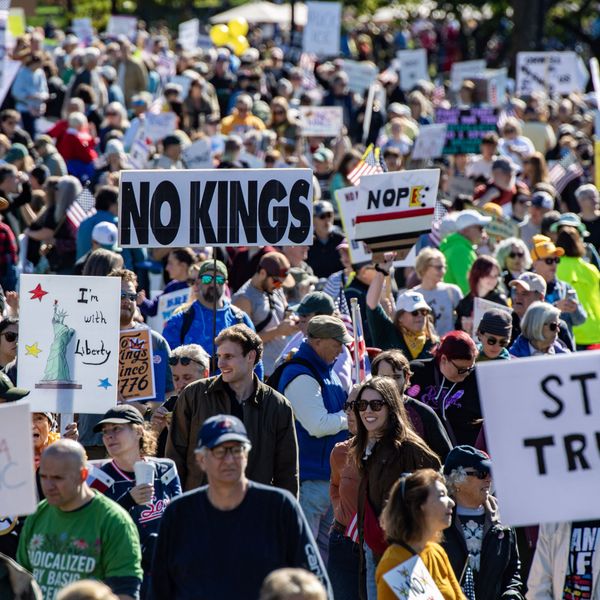Barack Obama, elected
on a platform that promised "change," is in meetings with
his transition team, weighing decisions about cabinet posts and
administration assignments. As media analysts feed greedily at the
prospects of Hilary Clinton as Secretary of State and Robert Gates
continuing as Secretary of Defense, the whole world is watching.
Displaced Iraqis - both within Iraq and in neighboring
countries - are, arguably, among those with the most at stake.
I'm thinking of
people like Khalid, whose fifteen year-old son, Nabil, was injured a
year ago when he and his friends were walking home from school and a
car bomb exploded a hundred yards away. The car bomb killed nine
people, and injured seventeen. Nabil was walking along the Euphrates
Dam when the bomb exploded. The concussion from the explosion threw
him off the Dam; he landed on his head, ten feet below.
Terrified and stunned,
Nabil picked himself up, stumbled, and finally managed to run home.
It was ten days before it became clear that Nabil had suffered severe
neurological damage when he fell. The first indication was his sudden
difficulty remembering. Soon, he began to slur his speech. Then his
balance left him, and he found he couldn't bring a spoon to his
mouth to eat. Today, over a year later, his speech is unintelligible,
and he can't control his bladder or his bowels. He needs a
full-time caretaker.
Seven months ago,
Khalid sold his taxi to obtain enough money to bring his family to
Amman, Jordan in the hope of getting medical care for Nabil. When the
family arrived at the Jordanian border, however, authorities turned
away Nabil's mother and his five siblings, allowing only Nabil
and his father to enter the country. This family, devastated by the
injury to their oldest child, is now separated as it tries to cope
with the injury's consequences.
The Jordanian
government has done a great deal for Iraqis by allowing so many
displaced people to enter the country. But it does not have the
resources to provide for the needs of Iraqis, and the international
community has failed in providing support to it. In Amman, Khalid is
treated like a visitor or tourist. He is not allowed to work; his
visa is temporary and short-term; he must find and pay for his own
housing; and he has no right to social services. Because the
emergency support services provided by international NGOs continue to
fall so far short of what is needed, Nabil has received little
medical care in Jordan, even though excellent medical care exists for
patients who can pay for it. Staffing is so short at the
physiotherapy clinic Nabil attends that his father - instead of
a trained therapist - ends up assisting Nabil with the
exercises. "Why bother going to the hospital, when no one works
with us?" Khalid asks. "It would be easier to work with
my son at home."
To assist Khalid with
living expenses, an international NGO provides him with 20 Jordanian
dinars ($30) a month. The cost for his fourth-floor apartment,
however, is nine times that: 180 dinars (approximately $250). In
addition, there are utilities costs. It is an untenable situation,
not only because he can't afford it, but also because Nabil,
whose condition is worsening, has to struggle up four flights of
stairs to arrive home.
A complete medical exam
for Nabil will cost 200 dinars ($280), and physical therapy at a
private clinic, almost certainly part of a good treatment plan for
him, will cost 180 dinars per month, without accounting for
transportations costs of 50 dinars ($70).
We all know that the
kind of medical care Nabil needs and the assistance that his family
needs begin with (and depend on) quality personal attention, with
skilled professionals who take an abiding interest in their
well-being. At Direct Aid Iraq (www.directaidiraq.org),
we aim to provide this kind of support, on the small scale which our
resources allow. We ask ourselves why foreign policies can't be
predicated on the same level of attention.
The lack of attention
being paid by US leaders - and by leaders throughout the world - to the needs of displaced Iraqis is worrisome and deeply
disturbing to us. It signals that Iraqis really don't matter in
their considerations, and that the embryonic hope which Barack
Obama's Administration represents will be stillborn. It signals
that Iraqis will have to continue to fend for themselves against the
enormous and sometimes overwhelming forces of war and displacement.
Viewed from the
perspective of displacement, poverty, unemployment, insecurity, and
physical and emotional trauma, the current process of choosing
cabinet members must seem bizarre at best, and at worst, a cynical
and irrelevant game where political calculations trump all other
considerations. When was the last time you heard Barack Obama or
Joseph Biden or one of their advisors talk about the Iraq
displacement crisis? In making choices for cabinet posts and in
setting Administration priorities, are the needs of Iraqis even being
placed in the hopper?
Given what the
US-British invasion and occupation have wrought and unleashed in
their country, who could blame Iraqis for shaking their heads in
disbelief, for believing the world has forgotten them, for concluding
that, in fact, whatever change an Obama administration ushers in, it
isn't likely to be the change they need?
Here at Direct Aid
Iraq, we believe that US policy toward Iraq can in fact address
the needs of Iraqis displaced both within and outside of the country.
But the best hope for this change lies in the American people, in
people who haven't forgotten their Iraqi sisters and brothers,
who haven't forgotten the responsibility that the American
government bears to provide humanitarian aid and to pay war
reparations. The best hope lies in the possibility of American people
demanding that their government wake up, pay attention, and act on
behalf of Iraqis harmed by war and occupation.
At Direct Aid Iraq, we
continue to bring the voices and perspectives of Iraqi people into
the US discourse on Iraq. Anyone who wishes to participate in our
work can contact us through our website.
Another opportunity for
Americans who wish to stand up for Iraqis is Camp Hope: Countdown to
Change, being organized by Voices for Creative Nonviolence
(www.vcnv.org).
Camp Hope is an effort to "build popular momentum behind the
progressive goals of President Obama's campaign."
Activists convening in Chicago will maintain a three-week outdoor
presence (January 1st - January 19th) in
Hyde Park, where Barack Obama lives. They have created an 8-point
platform, a set of goals on a range of progressive issues that an
Obama administration could actually accomplish in its first hundred
days.
In a forthcoming
letter, Kathy Kelly of Voices for Creative Nonviolence (VCNV) writes:
"We believe that the U.S. should
ultimately initiate massive
nonmilitary aid programs to help Iraqis rebuild their neighborhoods,
their infrastructure, and their lives, and to assist especially those
who have been displaced by war." VCNV rightly recognizes that
this won't happen without a "visible groundswell of
support," one which "starts" with vocal public
support for troop withdrawals and an end to American hostilities in
Iraq. Activists across the country who wish to support Camp Hope can
do so by coming out to Chicago (bring your scarf) or by organizing
short local vigils (one- or two-day) to demonstrate widespread
support of its goals.

